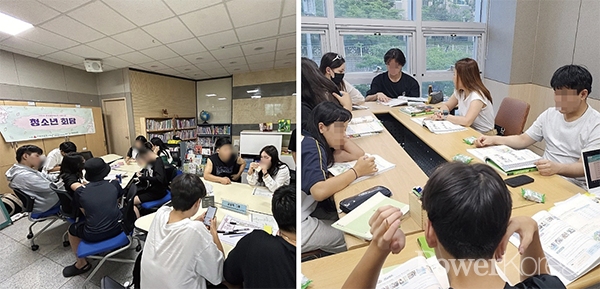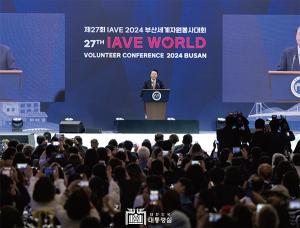 |
||
As of the end of October 2024, the total number of foreigners residing in Korea was 2,692,359 (1,480,673 registered foreigners, 552,504 foreign national compatriots, and 659,182 short-term foreigners), with 97,000 foreigners living in the Gyeongnam region. Among them, Gimhae City has the largest number of foreign residents in the non-metropolitan area with 28,000 (5,377 residence declarations, 5th in the country). The Gimhae Global Youth Center supports migrant youth who are struggling with language barriers and cultural unfamiliarity.
 |
Providing support to migrant youth
According to OECD standards, the number of foreigners living in Korea is 4.4% of the total population, making Korea a multiracial and multicultural country. Migrant students who have entered Korea have different background than children of multicultural families born in Korea. They are young people who were born and raised in their home countries so they are experiencing difficulties with different languages and cultures. They often enter Korea on tourist visas and are classified as illegal immigrants. “We are helping them to become independent, self-reliant, self-governing and healthy members of society. We help them realize their dreams despite the language barrier and unfamiliar culture. I’ve met each one of them once a week and some have never talked for a year.
 |
Most of their parents are Koreans, who settled down in foreign lands due to various political and economical reasons in history and came back to Korea for a better life. But they are busy working to earn a living and not having time to take care of their children. I felt sympathy and gave them free meals on my own expense for a year and that was the start.” says the center director Sohn Eun-sook. It has been 7 years now. She continues “Gimhae is home to the largest number of Vietnamese, followed by foreigners from Uzbekistan, Indonesia, Cambodia, Nepal, Myanmar and China while Jinyoung the largest number of the once-Koreans (over 3,000 registered residents).” From 2014 to 2021, the center obtained various support and social cooperative certificates from the local government. “The problem is that they are treated as strangers both in their home lands and here in Korea. According to my experience, first 6 months to one year is the golden time for them to settle down nicely. So we are moving with this in mind to help them settle down nicely whether it is elementary or midle and high schools.” She adds that a multi-cultural alternative schools are urgently needed for them to get the same public education like Koreans.
김태인 기자 red3955@hanmail.net







